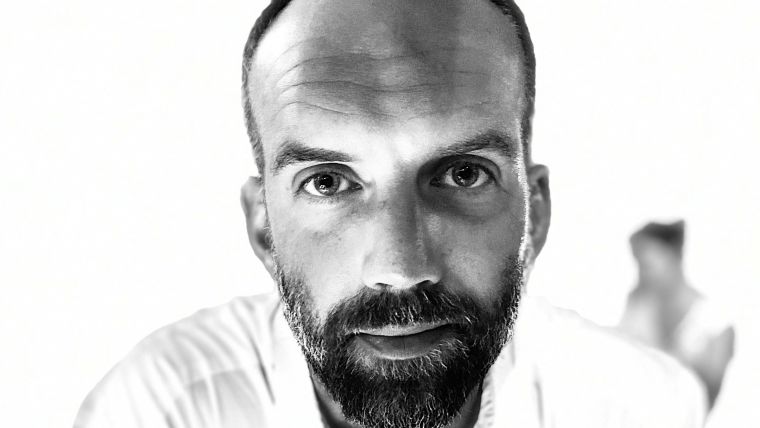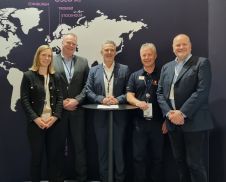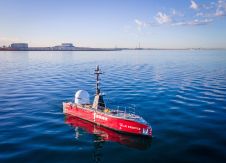The Necessity of Raising the Profile of the Hydrographic Profession
5 Questions to... Eric Langlois, Chairman of the IFHS
Hydro International spoke to five leading experts about the present and future of the hydrographic industry. In this interview, Eric Langlois (International Federation of Hydrographic Societies) focuses on the next generation of hydrographers: the impact that the Covid-19 pandemic is having on their futures, and the importance of recognizing their desire for sustainable solutions.
2020 has been an extraordinary year. What are the impacts of Covid-19 on the hydrographic industry, and what other factors have influenced the business?
Beyond the hydrographic industry, I’d prefer to say that the entire hydrographic community has suffered from the impacts of the Covid-19 pandemic. In the field, survey teams had to ensure compliance with disruptive social distancing rules, while more widely, multiple lockdowns and travel restrictions prevented industry stakeholders from sustaining their activities, with significant loss of business opportunities. In my opinion, however, the most significant impact is still underestimated: the fate of an entire generation of young hydrographers due to the current economical context.
The silver lining of the situation is the way in which our profession has managed to explore ways to sustain its activities and keep us alive through various remote and online initiatives, showing how resilient and cohesive our community is.
When it comes to technological developments, how would you describe the current state of the hydrographic industry?
Industry has to simultaneously address climate change, digitalization and a sustainable economy, while also coming up with fast answers and solutions. The hydrographic industry is no exception. Fortunately, technological innovation has always played an important role in hydrography, contributing to its development and its renewal. Thanks to technology, I see more and more people – who sometimes have no particular hydrographic background – addressing hydrographic issues from a certain technical angle and eventually contributing to evolve our game. For example, the use of unmanned surface and underwater vehicles opens new perspectives for resolving the current challenge of our partially surveyed ocean seafloor. Furthermore, concerning data processing and hydrographic services, the introduction of big data science and artificial intelligence developments are providing a broader dimension to our activities that used to be strictly human-controlled, not so very long ago.
How do you expect hydrography to evolve over the coming years?
I expect hydrography to evolve as a ‘hydromatic’ discipline (our own version of geomatics), as one pillar of a global geospatial cloud, with multi-platform capabilities providing consolidated marine information for various multi-user services and products. I also expect hydrography to answer the call of our current environmental challenges and contribute to revealing our ocean’s true potential for sustainable growth, in a decade where obvious ecological solutions still suffer from a lack of sustainability (such as the recycling impact of electric cars).
In what ways can the hydrography sector learn from other industries?
To follow up on the potential benefit to hydrography of disruptive ways of thinking, I guess we could learn from new space developments; in particular, how a new generation of entrepreneurs has introduced a new dimension to costly, safeguarded and performance-constrained technology and savoir-faire by transferring enhanced concepts and applications to the space arena. This has helped to change the mindset of the space industry. Could you ever have imagined students building their own satellite in a school lab?
What opportunities and threats do you see for our profession?
The first opportunity I see is to strengthen our community of professionals. Hydrographic expertise is not sufficiently recognized worldwide, nor are our professionals. While there are plenty of certified academic programmes in hydrography to build our expertise, there are very few leverages to legitimate it. The consequences are that our expertise is frequently challenged by other corporations, and a lack of interest from younger generations.
In that context, a global personal accreditation scheme would definitely contribute to raising the awareness and profile of the hydrographic profession. Our profession and industry could take advantage of this recognition mechanism, and the younger generations may consider hydrography as a promising career path. As far as younger and future generations are concerned, the opportunity to extend hydrographic expertise to new space, data science and artificial intelligence applications could also be a key factor.
Finally, to be audible to those generations, who show more and more reluctance to accept the older generation’s environmental approach, our profession needs to ensure full sustainability. This implies monitoring the true footprint and impact of our activities on our surroundings (e.g. the impact of survey activities on wildlife, the energy cost of extensive data storage), while addressing current environmental challenges.
Eric Langlois worked for more than ten years at the French Hydrographic Office (Shom) and has been a Category A hydrographer since 2004. He is currently employed by the French Defence Procurement Agency (DGA) as Head of Space and UAVs. In 2019, Eric was appointed Chairman of the International Federation of Hydrographic Societies (IFHS), which represents the whole of the hydrographic professional community.

Value staying current with hydrography?
Stay on the map with our expertly curated newsletters.
We provide educational insights, industry updates, and inspiring stories from the world of hydrography to help you learn, grow, and navigate your field with confidence. Don't miss out - subscribe today and ensure you're always informed, educated, and inspired by the latest in hydrographic technology and research.
Choose your newsletter(s)
























